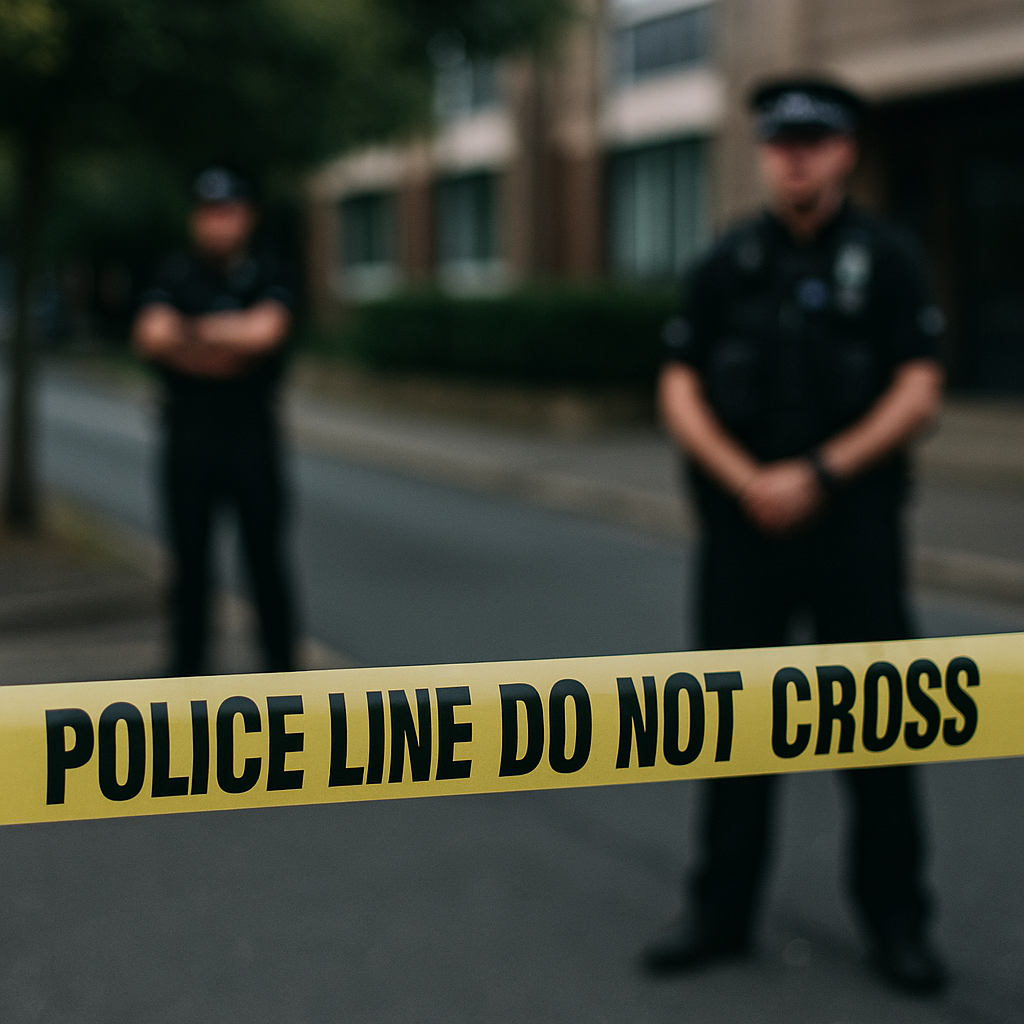
Manchester Terror Attack on Yom Kippur: Grief, Resilience and Response
On the holiest day in the Jewish calendar, violence came to a quiet corner of North Manchester. What followed was fear, courage, and a city gathering itself back together.
In the silvery light of an autumn morning, when most were worrying about coats, coffee and the rush of the school run, worshippers in Crumpsall were arriving in quiet reflection. It was Yom Kippur, the day of atonement. Steps were hushed, greetings soft, and the drift towards the synagogue steady. Then, in a single moment, the stillness broke. A car mounted the pavement, shouts cut the air, and the scrape of metal gave way to panic.
What followed will be retold in timelines and reports, but to those present it came in a blur. People ran to pull others to safety, security volunteers pushed back instinctively, and calls to the police rang out. Armed officers arrived within minutes, taking decisive action. The suspect was shot, ambulances streamed in, and the scene shifted from chaos to an uneasy quiet.
The Pavement Turns Cold
By mid-morning Middleton Road had transformed. Blue tape marked its boundaries, officers moved methodically, and anxious neighbours watched from behind barriers. Rumours spread quickly as specialists examined the vehicle. A loud bang later confirmed a controlled detonation. The item was a hoax, but the fear was real. Two innocent lives had been lost and several more people were injured. Counter Terrorism Policing confirmed it was a terrorist attack aimed at Manchester’s Jewish community on its most solemn day.
Government and Police React
In London, the Prime Minister chaired an emergency COBR meeting and condemned the attack as vile and antisemitic. Extra police patrols were ordered for synagogues and Jewish schools nationwide. Funding was promised for community security measures. In Manchester, Greater Manchester Police declared a major incident. Roads were sealed, officers went door to door, and forensic teams combed the area. The Independent Office for Police Conduct also confirmed it would review the circumstances of the shooting, as is standard after any firearms incident.
Manchester’s Familiar Response
The city of Manchester has faced tragedy before. The 2017 arena bombing remains etched into its collective memory, shaping how institutions and communities respond. That resilience returned on 2 October. The Mayor stood with local leaders, council representatives spoke firmly of unity, and faith groups across the city offered support. The Community Security Trust shared updated advice with synagogues and volunteers, urging calm vigilance.
Alongside the official response were smaller, quieter gestures. A newsagent brewed tea for officers, a bus driver reassured a shaken teenager, and an elderly resident offered tissues to strangers. These modest acts carried the weight of solidarity and steadiness.
Carrying On Through Grief
In Jewish homes across North Manchester, the Yom Kippur fast ended with more silence than celebration. Families lit candles, checked on friends and shared prayers for those who would not be returning home. For some, the emotional shock will leave sharp traces in the days ahead. For others, it will fade gently. What binds them together is the reassurance of a city determined to care for its own.
What Comes Next
Investigators are working to establish whether the attacker acted alone and what motivated him. Two further arrests have already been made. Meanwhile, visible police patrols remain in place at synagogues and Jewish schools across Greater Manchester and beyond. Community leaders have urged vigilance, but also calm, stressing that Jewish life must carry on in strength and dignity.
Manchester Holds Steady
As evening drew in, the cordon remained, officers rotated shifts, and the city prepared for the next day. In kitchens across Manchester, radios played quietly and families ate their meals with more thought than chatter. But there was also laughter, because Manchester is a city that laughs even in grief. It was laughter tinged with defiance, a way of saying: we are still here.
Tomorrow Manchester will carry on. Buses will run, shops will open, children will walk to school. The Jewish community will continue its prayers. And the city, once again, will have shown that it cannot be broken by hate.